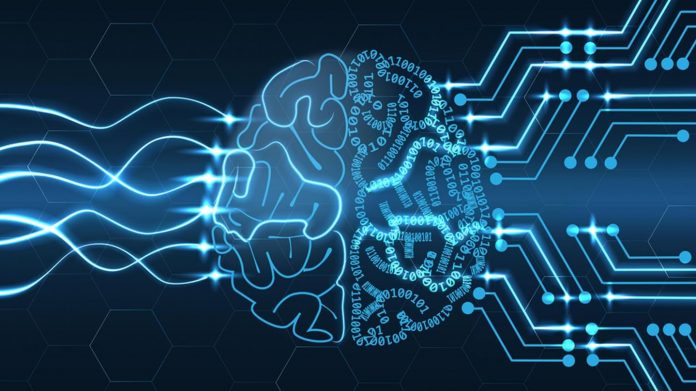This article is written by Aishwarya Parameshwaran, pursuing Diploma in Intellectual Property, Media and Entertainment Laws from LawSikho. The article has been edited by Aatima Bhatia (Associate, LawSikho), Ruchika Mohapatra (Associate, LawSikho) and Indrasish (Intern at LawSikho).
This article has been published by Abanti Bose.
Table of Contents
Introduction
Artificial intelligence may sound like a very technical term to a layman. However, we use it very normally and regularly in our day-to-day life. Be it Alexa, Grammarly or Facebook, we all have used artificial intelligence at some point in time and it is extremely interesting how technology is rapidly growing across the world. Additionally, the pandemic has changed the dynamics of technology and laws. Amongst all, Artificial Intelligence (AI) has been significantly growing and now its scope is not just limited to inventions. In recent times, AI has advanced so much that it can now create art, literature and many more things on its own.
Around the world, there has been a significant debate on whether AI can hold IP rights and what shall be the legal implications of AI could own IP rights. Countries like Spain, Germany and Turkey haven’t granted AI the legal personality to own intellectual property rights. Every country seems to have a different approach towards the question of whether AI should qualify to own intellectual property rights. In this article, we are first going to understand what AI is and how it works. Then we will be discussing who can own IP rights in India following which we shall analyse whether AI can own IP rights in India.
What is AI?
AI is nothing but a simulation of the intelligence of human beings by using machines and computer systems. The general application of AI is primarily in areas like speech recognition, natural language processing, expert systems and machine vision.
A foundation of software and hardware is required by AI for writing algorithms. Programming of data is what makes an AI do all its wonders. The Learning Process of AI focuses on how to turn data into information using algorithms. It provides the computer system instructions to complete a specific task.
Who can own IP Rights in India?
Copyright
In India, the law which deals with copyright is the Copyright Act 1957. If we want to understand if AI can own copyrights, we will have to analyze the intent of the legislature with respect to the copyrights. It would be interesting to understand that, in future, if AI creates a creative work, would that work be copyrightable? If the work would be copyrightable who would own rights? How would such work get exploited? Would such work of AI be granted protection under the Copyright Act?
To find answers for these questions with respect to the Indian scenario, we would have to first analyse the definition of ‘author’ given under the act. This definition is given under Section 2(d) (vi) of the Copyright Act and it lays down that in cases wherein an artistic work is computer-generated, then the author of such work shall be the person who causes such work to be created. The usage of the term ‘person’ is specified as either a human being or an organization/association consisting of human beings as per the Indian jurisprudence with respect to IP laws.
Therefore, since artificial intelligence is not considered as a person, even if AI creates a copyrightable work, the protection for such rights shall be conferred on the person causing it to be made and not the AI system. Additionally, if such work is to be exploited under licensing or assignments, a written contract is essential. Again, as per the Indian Contract Act, 1872 which governs the laws related to contracts, a contract must be between individuals or legal entities. So, even as per the contract law if a work is to be exploited, it can be only done by a person. Hence, AI can neither own nor exploit copyrights created by it in India.
Patents
The laws pertaining to patents are dealt with under the Indian Patents Act, 1970 in India. The patent rights are granted to ‘inventors’ as per the Act. Let’s understand who can be an inventor and if an AI system can own patents. The term ‘inventor’ has not been specifically defined under the Act. However, Section 6 of the Act talks about persons who are entitled to apply for patents. As per Section 6 of the Indian Patents Act, 1970, an application for patents can be made by any person who claims to be the true and first inventor, assignee of such person, or by a legal representative of such person.
The usage of the term ‘person’ makes it clear that AI systems cannot file for patents in India under the Indian Patents Act, 1970. A person can only file such an application.
Trademark
Trademarks are specifically dealt with under the Trademarks Act, 1999. The purpose of a trademark is to distinguish the origin of goods and services from the others in the market. As per the laws in India, it is not mandatory to register a Trademark. However, a registered trademark is protected under the Act and an unregistered trademark is given protection under the common law. Under the Trademark Act, who can own a trademark is not specifically defined. However, a registered proprietor under section 2(v) and registered user under section 2(x) has been defined as per which only a person can register a trademark or be a registered user under the Act.
Designs
The laws pertaining to industrial designs are dealt with under the Designs Act, 2000. As per this Act, the term ‘owner’ of the design rights is not specifically specified. However, the term ‘proprietor of new or original design’ has been defined under the Designs Act, 2000. As per this definition, a proprietor can be such a person for whom the design is so executed, for whom the design or right is acquired, or wherein the design has evolved from the original proprietor upon any other person. From this definition, it is clear that even the Designs Act grants rights and legal protection with respect to Designs only to a ‘person’.
Analysis
From the above discussion with respect to Trademark, Copyright, Patents and Designs, the intent of the legislature is clear. The legislature has drafted the laws in such a way that only a legal person i.e., a human being or an organization consisting of human beings can own IP rights in India.
The legislature with a great vision has drafted legislation in such a way that any kind of future ambiguity with respect to advanced machines or artificial intelligence owning IP rights in India is avoided. However, this scenario can drastically change if the AI systems or humanoid robots are granted citizenship or included within the definition of the legal person. If this happens the dynamics with respect to AI owning IP rights would change and eventually it would lead to legal implications because then, AI systems would be eligible to own rights and enforce their rights legally.
In 2017, Saudi Arabia granted citizenship to Sophia, a robot created by Hanson Robotics. It is the first robot to be given the status of a ‘person’ anywhere in the world. After Saudi Arabia made the announcement of granting citizenship to Sophia the robot, many members of the Parliament wanted to develop and boost technology and laws pertaining to it in India. In the field of technology, India is developing exponentially, we wouldn’t know what’s going to come next with this rapid growth, a bright future or a collapse of the entire mankind.
Conclusion
Although there’s a worldwide debate on this topic, the most common opinion of the experts from the industry is that artificial intelligence is nothing but a tool or mechanism which creates work based on the instructions programmed by the programmer. Hence, a programmer is deemed the owner of the works created by AI. Secondly, the approach of legislatures across the world is such that only a ‘person’ whether it is a legal person or a human being shall be entitled to IP protection with their respective intellectual property. Therefore, until and unless the legislature includes the AI systems or humanoid robots within the ambit of ‘person’, AI or any other computer-based machine cannot own any rights. It shall only be limited to being used as a tool.
Even if AI is included within the ambit of ‘person’, it can only be a symbolic gesture, since AI does not possess the capacity to claim or enforce rights. However, these dynamics can change with the evolution of technology.
To conclude, currently, India has not explicitly drafted any laws or rules, neither there are any case laws pertaining to artificial intelligence and its legal status. However, there could be certain changes in the laws to cope with situations when AI and machine learning would be advanced, Especially, with respect to intellectual property it would be best to have more clarity. The reason is, with the technological advancements and popularity that AI is gaining, one cannot even wonder when would AI be granted IP ownership rights.
References
- https://www.wired.co.uk/article/sophia-robot-citizen-womens-rights-detriot-become-human-hanson-robotics
- https://www.mondaq.com/turkey/patent/1118474/when-ai-gets-creative-can-artificial-intelligence-own-ip-rights-
- https://indiaai.gov.in/ai-standards/ai-and-intellectual-property-rights
Students of Lawsikho courses regularly produce writing assignments and work on practical exercises as a part of their coursework and develop themselves in real-life practical skills.
LawSikho has created a telegram group for exchanging legal knowledge, referrals, and various opportunities. You can click on this link and join:
https://t.me/joinchat/L9vr7LmS9pJjYTQ9
Follow us on Instagram and subscribe to our YouTube channel for more amazing legal content.
 Serato DJ Crack 2025Serato DJ PRO Crack
Serato DJ Crack 2025Serato DJ PRO Crack











 Allow notifications
Allow notifications


